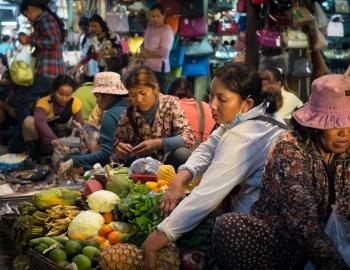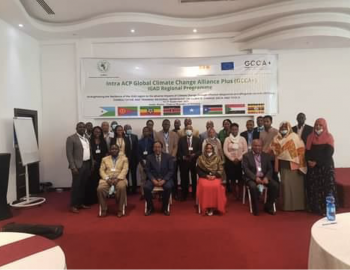Inside Story : Going after adaptation co-benefits: A REDD+ programme in Fiji
Inside Story : Going after adaptation co-benefits: A REDD+ programme in Fiji
Fiji has an advanced REDD+ policy and planning process. By using REDD+ financing to conserve forests, Fiji is not only contributing to climate change mitigation but also to climate change adaptation, disaster risk reduction, sustainable land management, and biodiversity conservation, all of which have direct benefits for communities. In this Inside Story, Going after adaptation co-benefits: A REDD+ programme in Fiji, Murray Ward of GTripleC, in association with CDKN and World Resources Institute, explores how Fiji's use of REDD+ financing has supported broader forms of climate compatible development and has inspired other Pacific nations to engage with REDD+ financing. His findings have relevance for other small island developing states.
The focus of climate change policy and planning in Fiji is on adaptation. This is to be expected: small island developing states (SIDS) are especially vulnerable to sea-level rise and extreme weather events. The international community accepts this, and international government and donor institutions have focused their support for SIDS in the Pacific on adaptation.
Key findings include:
- Climate change adaptation is the highest policy priority for Pacific Island Countries (PICs). Therefore, it is difficult for smaller PICs to justify the costs of developing ‘readiness’ to participate in international mitigation mechanisms.
- Although REDD+ is often considered primarily as a mitigation mechanism, it can also help build countries’ resilience to the effects of climate change.
- In PICs, programmes such as REDD+ may provide financial and other benefits that strongly support climate compatible development – thereby justifying the high costs of achieving ‘REDD+ readiness’.
- Forest conservation in PICs can be viewed as a climate change adaptation effort, supported by both adaptation and mitigation funding channels and technical expertise. This dual role of forests is being recognised in REDD+ initiatives at the national and regional scale in the Pacific.
- With funding and technical support from the international community, even small countries can make significant progress in creating policies and strategies for REDD+.
Read more from the Inside Stories series.
Picture: Andrewdp via Flickr



